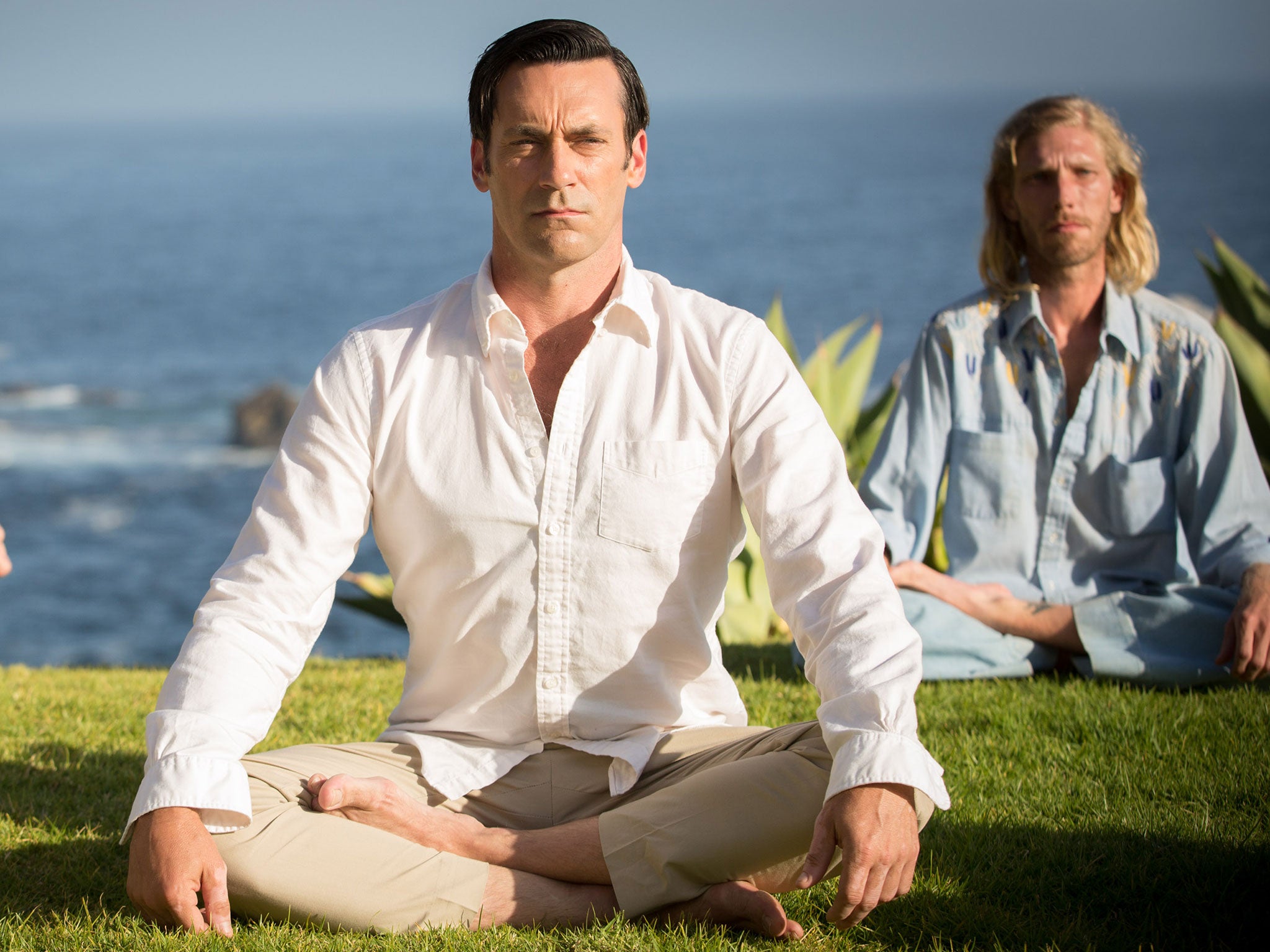Mad Men, TV review: Perfect harmony? Not quite, but an enlightening finale for Don Draper
Creator Matthew Weiner has crafted an emotionally satisfying conclusion

How do you end a series about everything and nothing? Do you go out with a bang or a whimper? Throw the kitchen sink at the finale or, as David Chase did with The Sopranos, simply fade to black? Matthew Weiner, the creator of Mad Men, worked on the latter show and has previously declared himself a fan of Chase's ambiguous ending, yet the conclusion he crafted, emotionally satisfying and rich in the small connections we make each day, ultimately owed more to another great show about humanity: Alan Ball's Six Feet Under.
Mad Men has always been concerned with communication, both that between ad man and audience and, more importantly, those many interactions, large and small, we make as human beings. For Don Draper, expert packager of the American Dream, selling the bigger picture has never been the problem: it's the smaller connections that always went awry, whether in his marriages, his many flings or, in latter seasons, his day-to-day relationships at work.
Mad Men season seven
Show all 16A man with two names who had reinvented himself time and time again, there was always something hollow at Don's centre, a part he couldn't ever bring himself to reveal. So it was fitting that this final season has seen him undertake one last quest to start over, driving and then hitching west to California, his own personal Xanadu, before ending up nearly catatonic in an ashram surrounded by other lost souls.
This being Mad Men, Don broke down and found enlightenment, but with a twist. The final shot of him cross-legged and chanting revealed not as a moment of spiritual nirvana but rather of creative reawakening with Don, the consummate magpie, stealing inspiration once again before almost certainly heading back to New York to make the iconic "I'd Like to Teach the World to Sing" Coca-Cola ad for McCann-Erickson.
Elsewhere, there were happy endings for Peggy, who found in Stan a partner who loved her for her creativity and work ethic rather than despite them; for Pete and Trudy, reunited, older and wiser but still able to dream; for Roger seeing out his end days in style with Marie; and for Joan, who chose work over romance and gained the satisfaction of "not answering to anyone" in a room of her own. In more bittersweet scenes we saw Sally, home and caring for her dying mother Betty, as the latter's lung cancer took hold. Yet even that sadness was tempered by our knowledge that Betty's final letter to her daughter was correct: Sally is a survivor – she will have adventures, a new life is beginning, all will be fine.
This was a beautifully acted finale of great warmth and hope, which gave the lie to the assertion that Mad Men always had more style than substance. The endings shown may not be final ones – Don may yet burn out or Stan and Peggy split one angry day – but they were snapshots into the wonder of life in all its messy glory. Contrary to Coca-Cola's famous ad, we don't always sing in perfect harmony but we strive, we try, and as Donald Draper, that great dreamer of Joan Didion's golden dream, would tell you, we get by.
Subscribe to Independent Premium to bookmark this article
Want to bookmark your favourite articles and stories to read or reference later? Start your Independent Premium subscription today.

Join our commenting forum
Join thought-provoking conversations, follow other Independent readers and see their replies